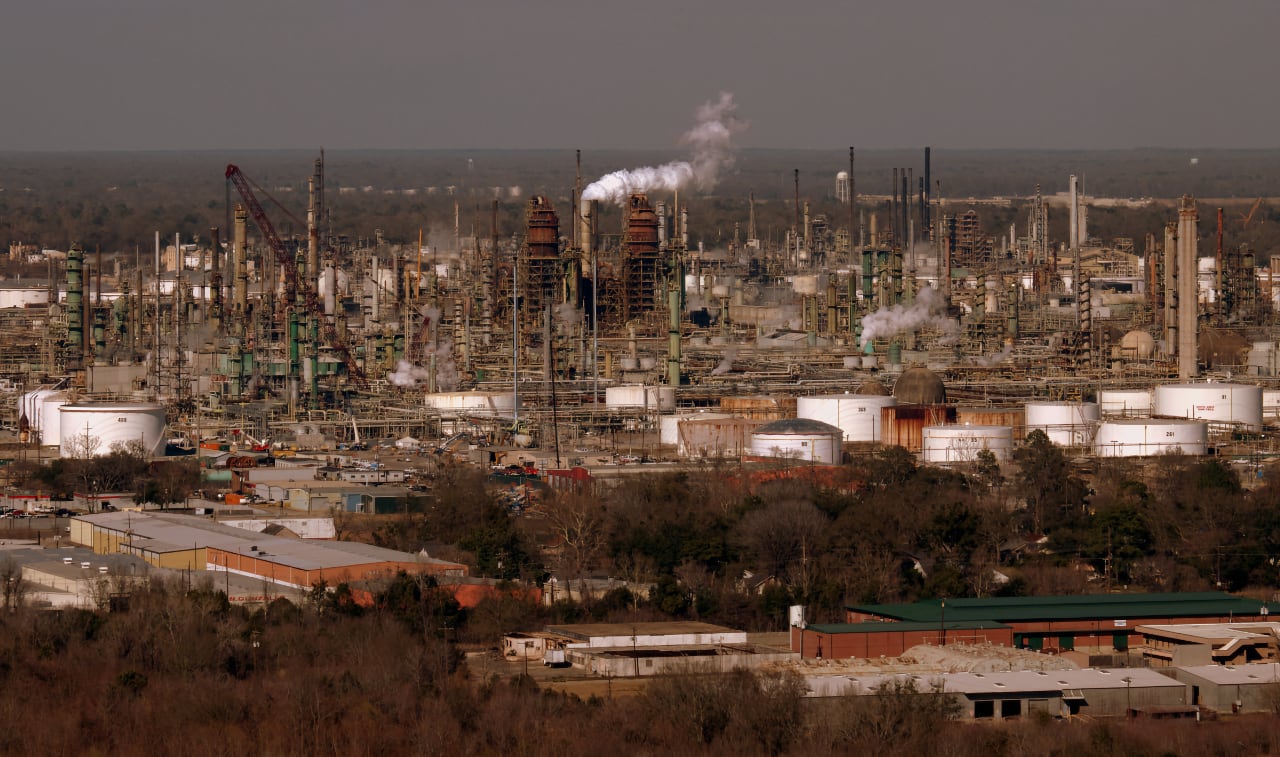Displaying items by tag: mississipi river
Juneteenth: An Urgent Call for Climate Solutions
 ExxonMobil’s Baton Rouge, LA refinery, Feb. 11, 2016. Later that day, shortly before midnight, a massive fire broke out, bathing the night sky in an orange glow visible for miles around.
ExxonMobil’s Baton Rouge, LA refinery, Feb. 11, 2016. Later that day, shortly before midnight, a massive fire broke out, bathing the night sky in an orange glow visible for miles around. ![]() Jim Brown/Flickr
Jim Brown/Flickr
Generations of Black Americans have faced racism, redlining and environmental injustices, such as breathing 40 percent dirtier air and being twice as likely as white Americans to be hospitalized or die from climate-related health problems.
AMERICA TODAY — This week, NPR’s Living on Earth podcast and illustrated transcript elucidates how relevant the broader meaning and historic context of Juneteenth is for all American citizens and residents.
Host Steve Curwood discusses with Heather McTeer Toney her new book, ‘Before the Streetlights Come On: Black America’s Urgent Call for Climate Solution.’
McTeer served as the Southeast Regional Administrator of the Environmental Protection Agency in the Obama administration and is now Executive Director of Beyond Petrochemicals. She argues that the quest for racial justice must include addressing the climate emergency and that the insights of people who experienced the negative health and socio-economic impacts of the petrochemical industry must be tapped to develop solutions that will work on the ground.
- juneteenth
- environmental justice
- racial justice
- heather mcteer toney
- social justice
- racism
- air pollution
- petrochemical
- petrochemical industry
- living on earth
- npr podcast
- slavery
- history of slavery
- climate emergency
- cancer alley
- steve curwood
- public health
- environmental racism
- mississipi river
- baton rouge
- black vote
- black and brown people
- interfaith power and light
- evangelical on the right
- religious leadership
- evangelicals for the environment
Praying for rain as the Mississippi breaks
 Low-water challenges on the Mississippi River are evident at Memphis. Dulce Torres Guzman/Tennessee Lookout
Low-water challenges on the Mississippi River are evident at Memphis. Dulce Torres Guzman/Tennessee Lookout
Despite the pump from Appalachian rainforests, the drought-stricken Mississippi River is the lowest it has ever been
This story was originally published by the Tennessee Lookout.
MEMPHIS — John Dodson’s corn, cotton and soybean fields are fewer than 10 miles from the Mississippi River, the key transportation artery for West Tennessee grain farmers. But they might as well be a thousand miles.
Historically low water levels on the river are coming at the worst possible time for him. It’s peak harvest season, but he can’t get his crop to market.
West Tennessee farmers have long relied on proximity to the Mississippi, delivering their crops directly from the field to the river. The ease of access has meant many farmers lack large grain storage silos that farmers in the Midwest and elsewhere rely on.
While drought strangles transportation on the Mississippi, many of these farmers are now being forced to leave crops in the field and pray for rain to fall anywhere and everywhere else but above their harvest-ready crops.